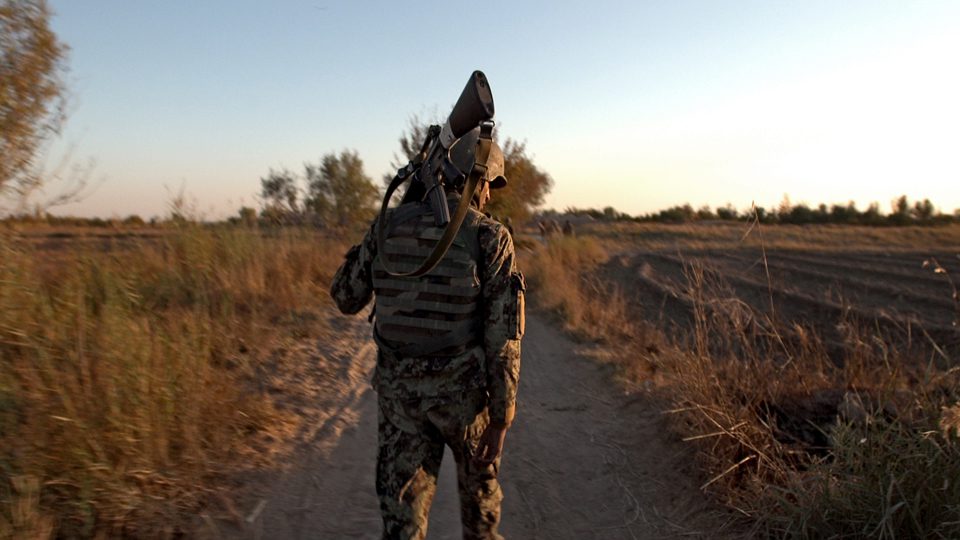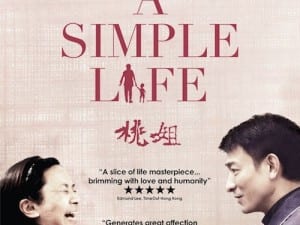Saeed Taji Farouky and Michael McEvoy’s documentary Tell Spring Not to Come This Year follows two soldiers from the Afghan National Army during their first year fighting without NATO support. Portraying a previously unseen perspective, the feature uncovers the deep personal motivations of a band of fighting men on the frontline of the “War on Terror”. The film will have its UK premiere at Sheffield Doc/Fest this weekend and Taji Farouky speaks to us about uncovering the human struggle of war and the need to remain objective when working.
A: What inspired you to create this particular film and why did you feel the viewpoint of the Afghan troops during the “war on terror” was important to explore?
STF: When I’m making a film about a major topic, like the war in Afghanistan, it often takes me years to find the story that I want to tell. I want to make sure I’m not making the same documentary that everyone else is making, that I can find a unique perspective, and I want to make sure I’m making a film that can contribute to the debate, rather than repeat the same narrative over and over again. This often happens in documentaries about war. Since 2004, when I started making films, I knew I should make a film about Afghanistan, but I never knew what it would be about. Then, out of nowhere, I got an email from Mike McEvoy, who I eventually co-directed the film with, through a mutual friend. Mike said he had an idea for a film in Afghanistan and he was looking for someone to direct it with. I knew immediately this was an important and unique story. We both feel the perspective of the Afghan troops is crucial for audiences to understand. First, because these are the people who have the most to lose in Afghanistan’s future, these are the people whose country is at stake. All the documentaries about foreign troops in Afghanistan, while also being important, are only telling a minute part of the story. Second, since the start of the war, NATO has been saying the new Afghan National Army will be the future of the country, they will inherit the war. But in all this time, we’ve heard almost nothing about them except when something goes wrong. If this is NATO’s exit strategy, and the new front line in the “war on terror”, surely we should understand who these people are? Finally, I also felt that throughout the war the only debate we were hearing here in the UK was about the politics, the strategy and the economics of the war. We were never hearing about the human cost. These people in our film represent the consequences of the invasion from the USA. Men fighting for their survival in a war they never started.
A: How difficult did it prove to earn the trust of the Afghan troops you were filming and to create a documentary with such an organic feel?
STF: One of the reasons I knew I could make this film with Mike was that he had already worked for nine months with the men we filmed with. He knew them very well and they trusted him. So when him and I went to Helmand to film, we weren’t strangers. Of course there was still the awkwardness and difficulties of any documentary, but because Mike already had that history with the men, the issue of trust was made much easier. It still took us a year to get the real intimate interviews and footage we needed to tell a human story, but this isn’t unusual. My approach in filming with people is also to be as humble and curious as possible. I think many filmmakers let their ego, arrogance and compulsion for the project get in the way of their humanity. They no longer see the people in their film as humans, but as characters in their story. They also bring their own prejudices and racism to the picture, so they end up looking for scenes that confirm their prejudices. This is the best way to destroy a trusting, open relationship with someone. I try to achieve what you call an “organic” feel by simply being present at all times, with my camera, open to events as they unfold. I don’t try to craft events. I show genuine interest in people’s lives and I participate in their daily routines. I show them respect while making it clear that I’m not making a propaganda film. I try to show them that I’m not their to simply take moments from their lives, but to collaborate in the telling of a crucial story. After a year of that, people are so used to you they feel safe opening up.
A: What in particular do you want audiences to take away from viewing the film and are there any assumptions or stereotypes you wish to challenge?
STF: Both Mike and I want audiences to understand, above all else, that the war isn’t over. When NATO’s mission ended, and most foreign troops came home, the overwhelming news narrative was “the war is over.” And it might be over for the majority of foreign troops, but it’s now the Afghan soldiers and civilians who have to deal with the legacy of the USA invasion and occupation. In many ways, this is only the start of an even longer and more difficult war. We wanted to contribute to the debate about the war by showing audiences what it really looks like, on the ground, at the sharp end of the stick. The war isn’t about a conceptual “war on terror.” It’s not about global security and foreign policy. It’s not about military budgets. It’s about ordinary Afghan men and women struggling to survive in a chaotic and violent situation. It’s about a military with sub-standard equipment trying to keep fighting the same war that the USA and UK started 14 years ago, even though the war the USA and UK were fighting bears little resemblance to what’s actually happening on the ground. And, for me, there was a very personal reason for making the film. As a Palestinian, I’m so tired of seeing representations of my country and my people as cardboard cutouts in someone else’s drama. Most representations of the Arab World today are so superficial it’s inhumane. So in some sense, I felt I could understand how Afghans feel seeing the world’s media totally misrepresenting their country egregiously and continuously for 15 years. I felt the Afghans deserved to have a film made about them that was every bit as human, touching, moving, frightening, beautiful and intimate as the dozens of documentaries made about foreign troops in Afghanistan.
A: Winning the Amnesty International Human Rights Film Award seems a significant moment for Tell Spring Not to Come This Year. Do you believe that films have an important political role to play in 2015?
STF: The Amnesty Award was very special for me, even more so than the Audience Choice Award at Berlin, even though technically the Audience Choice is a “bigger” award. I’ve been a speaker and educator with Amnesty International for almost 10 years, and human rights is at the heart of all my work. Even in a film like this, which doesn’t immediately look like a typical “human rights” film – in that it’s not a campaigning or an issue film – it really is all about human rights for me. So to be recognised by Amnesty for that is a huge honour. I think it also helps to broaden the definition of “human rights documentaries” to include a more creative, less campaigning style. As for a political role, I never set out to make a film that will have political impact. I think if you start making a film that way, it inevitably becomes didactic and loses some of its filmic creativity. I set out to make a compelling, moving, human story. But, of course, that doesn’t mean it can’t have political impact. I think showing the humanity of people who have been misrepresented for decades as savages and backwards is a highly political act, especially in the context of a foreign invasion and occupation. I think making a film about the Afghan war that doesn’t include a single foreign soldier is a political act, when for 14 years this has been portrayed as an “American” or “British” war. I think films can play a political role if they are powerful enough as stories to get deep into our psyches and influence us subconsciously. Once they try to teach politicians a lesson, I think they lost the qualities of good filmmaking and become educational tools, which isn’t my kind of documentary. Sure, these campaigning films can often achieve direct political results, but I find they don’t survive long as “films.” In my opinion if a film can become part of a culture’s language, and can relate to audiences emotionally, not just logically, its effects will be much longer-lasting. I think ultimately audiences are clever enough to realise when someone’s trying to teach them a lesson, and they don’t generally like being treated like children. I also find there’s an inherent racism, or at the least orientalism, in a lot of political campaigning films. They spend so much time trying to tell you why you should care about these people, instead of relying on the fundamental principle of humanism that we should care about them because they’re human. Once you start justifying why we should care, you’re essentially saying “I know they dress differently and speak a different language, but look, they’re human too!” This is pretty insulting to both audiences and the people in your films.
A: Are you excited to be at Sheffield Doc/Fest? What are the benefits of showing your film at a festival such as this one?
STF: Sheffield is overwhelming. The scale of the festival is so immense I always get lost, and I feel at every moment that I might be missing something. It’s a great venue to show films because of this scale, you know that viewers and broadcasters from around the world are there and you know the festival has a capacity to really give attention to a good film. It’s also been so much a part of my filmmaking upbringing and education, there’s a very nostalgic sense every time I go there. In reality, more than showing my film, it’s more exciting for me because it gives me a chance to watch so many other films and catch up with friends that I only ever see once a year, even though we might live in the same city. Sheffield is also the official UK premiere of the film, and I think this is important both because it’s a British film, and because it’s very much about Britain’s legacy in the war. I hope it can be part of the ongoing discourse about the war, about our approach to international conflict in general, and function – on the most basic level – as a document of this time in the history of Afghanistan.
See Tell Spring Not to Come This Year this weekend at Sheffield Doc/Fest on 6 and 9 June. Find out more at http://tinyurl.com/oqfmkwj.
Credits
1. Tell Spring Not to Come This Year, courtesy of Saeed Taji Farouky.





